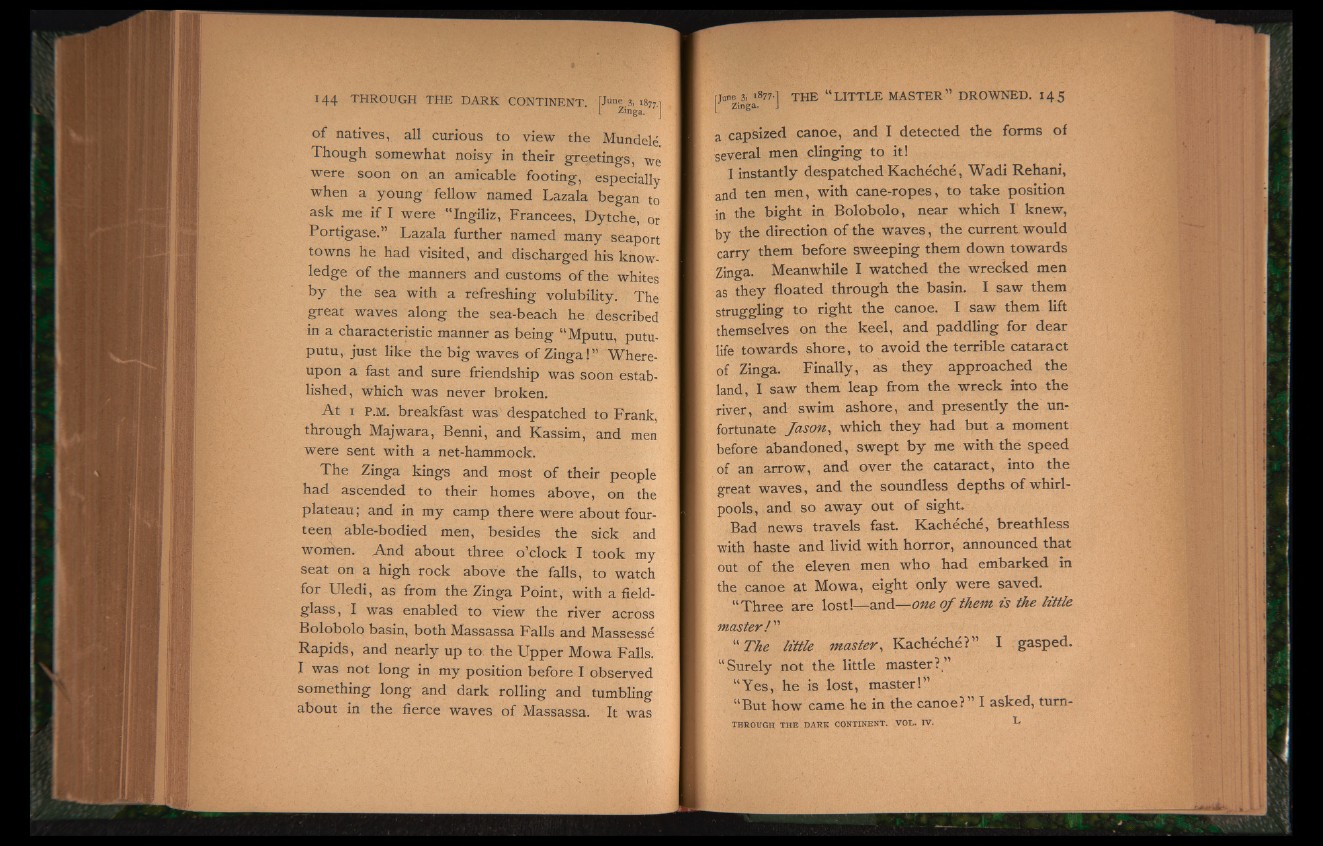
of natives, all curious to view the Mundele
Though somewhat noisy in their greetings, we
were soon on an amicable footing, especially
when a young fellow named Lazala began to
ask me if I were “ Ingiliz, Francees, Dytche, or
Portigase.” Lazala further named many seaport
towns he had visited, and discharged his knowledge
of the manners and customs of the whites
by the sea with a refreshing volubility. The
great waves along the sea-beach he described
in a characteristic manner as being “Mputu, putu-
putu, just like the big waves of Zinga !” Whereupon
a fast and sure friendship was soon established,
which was never broken.
At 1 p.m. breakfast was despatched to Frank,
through Majwara, Benni, and Kassim, and men
were sent with a net-hammock.
The Zinga kings and most of their people
had ascended to their homes above, on the
plateau; and in my camp there were about fourteen
able-bodied men, besides the sick and
women. And about three o’clock I took my
seat on a high rock above the falls, to watch
for Uledi, as from the Zinga Point, with a field-
glass, I was enabled to view the river across
Bolobolo basin, both Massassa Falls and Massesse
Rapids, and nearly up to the Upper Mowa Falls.
I was not long in my position before I observed
something long and dark rolling and tumbling
about in the fierce waves of Massassa. It was
rjune I 1877-1 t h e “ l i t t l e m a s t e r ” DROWNED. 14 5
[ Z in g a . J
a capsized canoe, and I detected the forms of
several men clinging to it!
I instantly despatched Kacheche, Wadi Rehani,
and ten men, with cane-ropes, to take position
in the bight in Bolobolo, near which I knew,
by the direction of the waves, the current would
carry them before sweeping them down towards
Zinga. Meanwhile I watched the wrecked men
as they floated through the basin. I saw them
struggling to right the canoe. I saw them lift
themselves on the keel, and paddling for dear
life towards shore, to avoid the terrible cataract
of Zinga. Finally, as they approached the
land, I saw them leap from the wreck into the
river, and swim ashore, and presently the unfortunate
Jason, which they had but a moment
before abandoned, swept by me with the speed
of an arrow, and over the cataract, into the
great waves, and the soundless depths of whirlpools,
and so away out of sight.
Bad news travels fast. Kacheche, breathless
with haste and livid with horror, announced that
out of the eleven men who had embarked in
the canoe at Mowa, eight only were saved.
“Three are lost!— and— one o f them is the little
master! ”
“ The little master, Kacheche?” I gasped.
“Surely not the little master?”
“Yes, he is lost, master!”
“But how came he in the canoe?” I asked, turn-
THROUGH THE DARK CONTINENT. VOL. IV. L